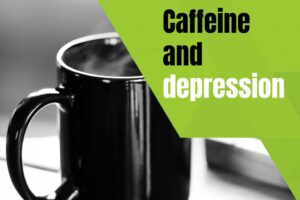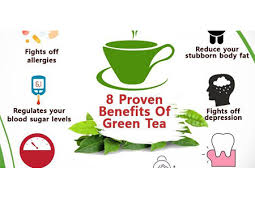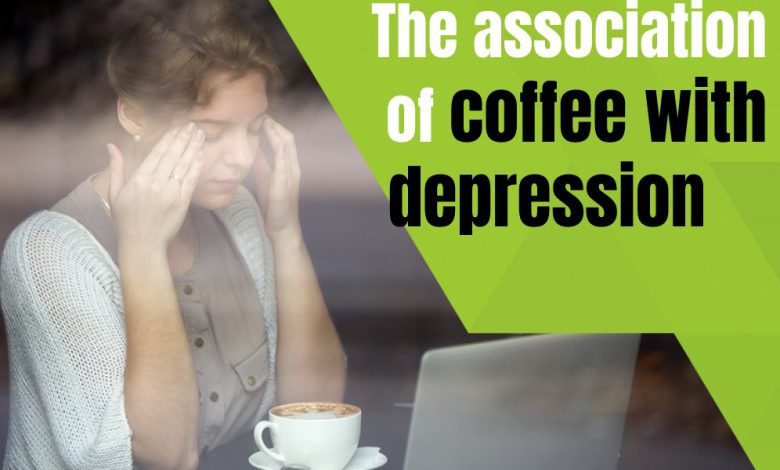Depression is a common mental illness that can affect anyone. Symptoms can include feeling sad or hopeless, having low energy, losing interest in activities you used to enjoy, and changes in weight or appetite. While there are many treatments available for depression, such as medication and therapy, some people may also want to try natural remedies. In this blog post, we will discuss the possible link between caffeine and depression.
Contents
Understanding Depression

Depression is a serious mood disorder that affects how you feel, think, and handle daily activities, such as sleeping, eating, or working. People with depression may experience feelings of sadness or hopelessness, loss of interest in activities they once enjoyed, fatigue, difficulty concentrating, changes in appetite or sleep patterns, and thoughts of death or suicide.
Depression is more than just a bout of the blues. It’s not a weakness and you can’t simply “snap out” of it. Depression may require long-term treatment. But don’t get discouraged. Most people with depression feel better with medication, psychological counseling, or both.
Link Between Caffeine and Depression
Caffeine is a stimulant that can temporarily make you feel more awake and alert. But, if you drink too much caffeine or have it late in the day, it can cause insomnia. Caffeine can also worsen anxiety and other mental health conditions. So, if you’re struggling with depression, you might want to limit your caffeine intake.
There’s also a link between caffeine and depression. A study in 2016 found that people who consume more than four cups of coffee a day are more likely to be depressed. The study didn’t prove that caffeine causes depression, but there is a correlation between the two.
While depression is a complex condition, there is some evidence that caffeine can help relieve symptoms. Caffeine is a psychoactive drug that acts as a stimulant in the brain. It’s found in coffee, tea, energy drinks, and chocolate. Caffeine can improve mood and reduce fatigue. It can also increase alertness and improve focus.
A review of studies found that caffeine can improve mood in people with and without depression. The authors concluded that the effect is small but significant. Another study looked at the effect of caffeine on fatigue in people with depression. The study found that caffeine reduced fatigue in people with depression, but not in those without the condition.
Caffeine is a psychoactive drug that can improve mood and reduce fatigue. There is some evidence that it may help relieve symptoms of depression. However, more research is needed to confirm these effects. If you’re considering using caffeine to treat depression, talk to your doctor first.
Can Caffeine Make Depression Worse?
It’s no secret that many people rely on caffeine to get through the day. But what some may not realize is that caffeine can make depression worse in some people. A study published in the Journal of Affective Disorders found that people who consume high levels of caffeine are more likely to experience symptoms of depression. The study’s authors suggest that people who are prone to depression should limit their caffeine intake. Caffeine is a stimulant that is found in coffee, tea, energy drinks, and chocolate. It can also be taken in supplement form. It works by increasing levels of the neurotransmitters dopamine and norepinephrine in the brain.
While dopamine and norepinephrine are important neurotransmitters that play a role in mood, they can also be associated with anxiety and agitation. For some people with depression, caffeine may make their symptoms worse.
If you’re struggling with depression, it’s important to talk to your doctor about whether or not caffeine is right for you. There are many other effective treatments for depression that don’t involve caffeine.
Although people often assume that caffeine and depression are linked, this may only be the case for those who are particularly sensitive to caffeine or consume too much of it. Caffeine can cause sleep deprivation, which in turn affects mood.
Are There Any Side Effects Of Caffeine Use?

Caffeine is a central nervous system stimulant. It’s found naturally in coffee, tea, chocolate, and cola drinks. Many people also take caffeine in the form of pills or energy drinks. Caffeine can help to improve mood, increase alertness, and reduce fatigue.
However, there is some evidence that suggests that caffeine may also have negative effects on mood. For example, one study found that people who consumed more than 600 mg of caffeine per day were more likely to report feelings of depression than those who consumed less caffeine.
Caffeine can also cause side effects such as anxiety, painful headaches, increased heart rate, insomnia, and irritability. If you’re taking medication for depression, you should talk to your doctor before adding caffeine to your diet.
It’s also important to remember that everyone reacts to caffeine differently. While some people may find that it improves their mood, others may find that it makes their depression worse. If you’re thinking about using caffeine to relieve your depression symptoms, it’s important to talk to your doctor.
The Dangers of Drinking Excessive Caffeine
Caffeine is a stimulant that can have many side effects, including anxiety, restlessness, and insomnia. When taken in large doses, it can also cause tremors, confusion, and rapid heart rate. While caffeine is not typically considered to be addictive, some people may develop a tolerance to it and need more and more to feel its effects. Excessive caffeine consumption can also lead to dehydration and electrolyte imbalance.
While there is some evidence that caffeine can help improve mood, it is not a long-term solution for depression. People who consume large amounts of caffeine may be at increased risk for developing anxiety and depression.
If you are struggling with depression, it is important to talk to your doctor about treatment options. While caffeine may provide some short-term relief, it is not a cure for depression.
Treatment Options

Of course, not everyone wants to or needs to take caffeine pills to get relief from their depression. If you’re looking for other treatment options, there are a few things you can try.
Lifestyle changes
It means making small tweaks to your routine rather than overhauling everything at once. Consider adding these habits to your routine:
Enough sleep: First, make sure that you’re getting enough sleep. Depression can cause insomnia, so it’s important to get on a regular sleep schedule. If you can, try to get at least eight hours of sleep each night.
Eat a healthy diet: A healthy diet won’t magically cure depression. But eating nutritious foods can help improve your mood and energy levels, which can make it easier to cope with depression.
Some good options include:
- whole grains
- lean protein
- healthy fats
- fruits and vegetables
- nuts and seeds
- Herbal tea can also be helpful.
Staying hydrated is important for overall health, and can also help improve your mood.
Exercise: A regular exercise is a powerful tool for managing depression. It can help improve your mood, energy levels, sleep, and self-esteem. Exercise can also be a great way to reduce stress. It releases endorphins, which have mood-boosting effects. A regular exercise routine can help alleviate symptoms of depression.
Yoga, Tai chi, and other forms of mindfulness meditation are particularly helpful for depression. These activities can help you focus on the present moment and connect with your body, which can be very soothing.
Depression can make it hard to stick to a healthy lifestyle. But making small changes in your eating, sleeping, and activity habits can help reduce symptoms.
Talk to a therapist
If you’re struggling with depression. A therapist can help you understand and manage your symptoms. They can also provide support and guidance. If you don’t have access to a therapist, many online resources can be helpful. various therapies can be effective in treating depression. If you’re not sure what type of therapy is right for you, speak to a mental health professional.
Cognitive-behavioral therapy (CBT) is one type of therapy that is effective in treating depression. CBT focuses on changing negative thinking patterns and behaviors. It can help you identify and manage your symptoms. If you’re interested in CBT, speak to a mental health professional about finding a therapist who specializes in this type of therapy.
Another option is medication. Medication can be an effective treatment for depression. If you’re considering medication, speak to a mental health professional about your options. They can help you find a medication that is right for you.
Caffeine can be a helpful tool in managing depression. But it’s not a cure. If you think caffeine might help relieve your symptoms, talk to your doctor. They can help you determine if it’s right for you.
Conclusion
It may be concluded caffeine and depression that caffeine can help relieve depression in some cases, but not all. If you think caffeine may bhelp relieveyour depression symptoms, talk to your doctor about whether it is right for you and how much caffeine you should consume. Remember, too much caffeine can worsen symptoms of anxiety and depression. Start with small amounts and increase gradually as needed. Be sure to monitor your mood and energy levels closely when you start drinking caffeinated beverages again. If you notice any negative changes, talk to your doctor.
For further information and suggestions, please contact Therapy Mantra. We have a team of expert therapists and psychiatrists that can help you overcome this problem. Get in touch with us right away to learn more about our services. You may also make an online therapy session or download our free Android or iOS app.


